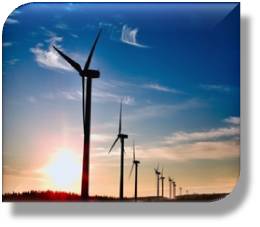The climate is changing as a result of anthropogenic greenhouse gas emissions that are now estimated to surpass the worst-case emission trajectory drawn under the Intergovernmental Panel on Climate Change in its third assessment report. The impacts of these changes are already being felt, more floods and droughts, heat waves and strong storms, particularly by developing countries.
 |
Low Carbon Development - Providing countries with approaches to meet their increasing energy needs in a less carbon intensive manner
Energy used for electricity production, by industry, by other consumers, and for transport accounts for about 65 percent of global greenhouse gas (GHG) emissions. Yet, energy services are a necessary input for development and growth and under a ‘normal’ development path global energy demand is expected to more than triple over this century as countries raise living standards and bring many millions out of poverty. This raises the challenge and need for a global effort to transform our energy systems to sustainable, low-carbon sources-- to “avoid the unmanageable” --- including the more efficient use of energy and renewable energy generation. |
 |
Adaptation - Providing knowledge and measures that can be used to build energy system resilience to climate change
While climate impacts on energy supply and demand are the most intuitive there are direct effects on energy resource endowment, infrastructure, and transportation, and indirect effects through other economic sectors (e.g.,water, agriculture). Adaptation--“managing the unavoidable”---includes the consideration of emerging climate conditions on existing energy infrastructure, new infrastructure and future planning to avoid locking in unsustainable practices today through investments in long-lived infrastructure and associated consumption patterns.
|
 |
 |
 |
 |